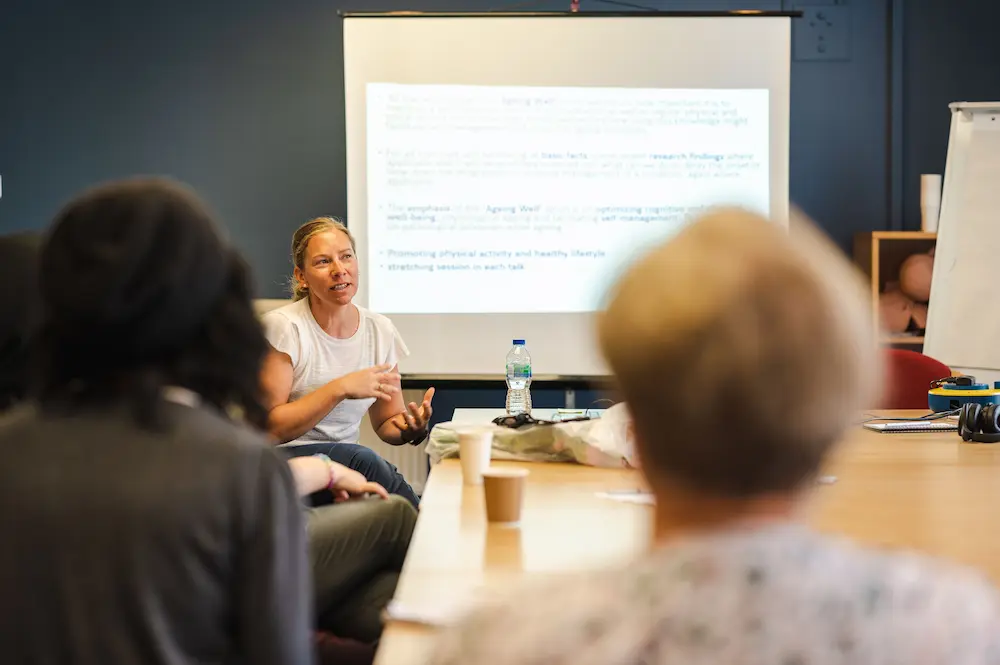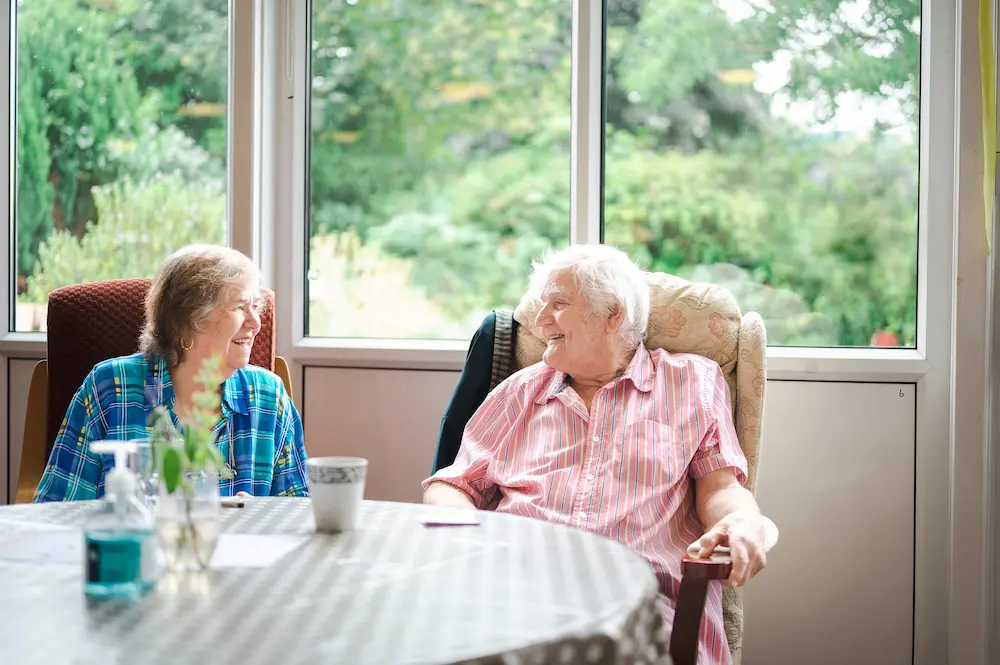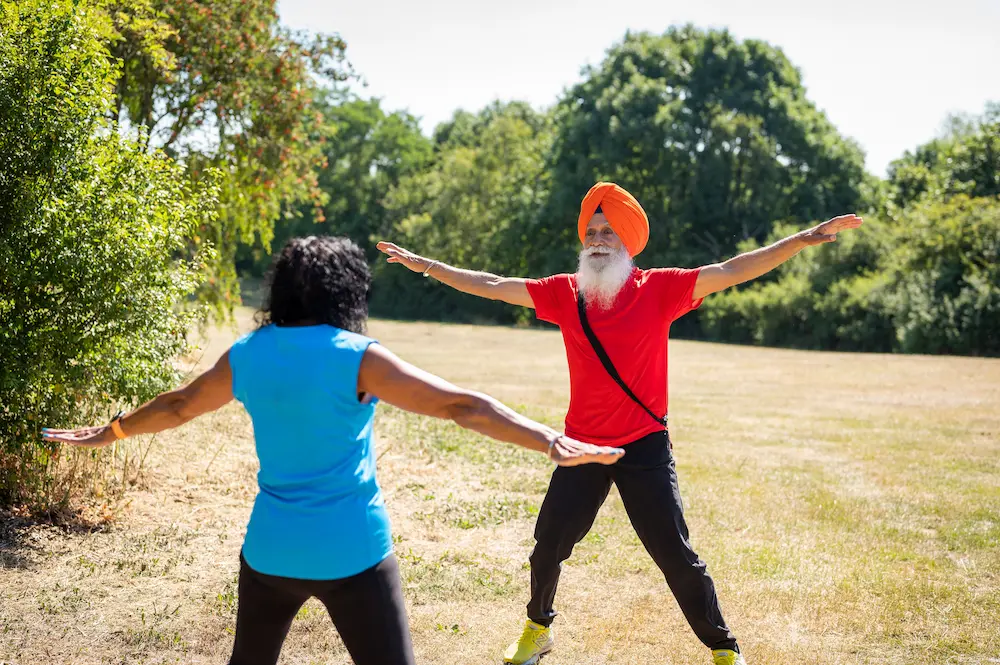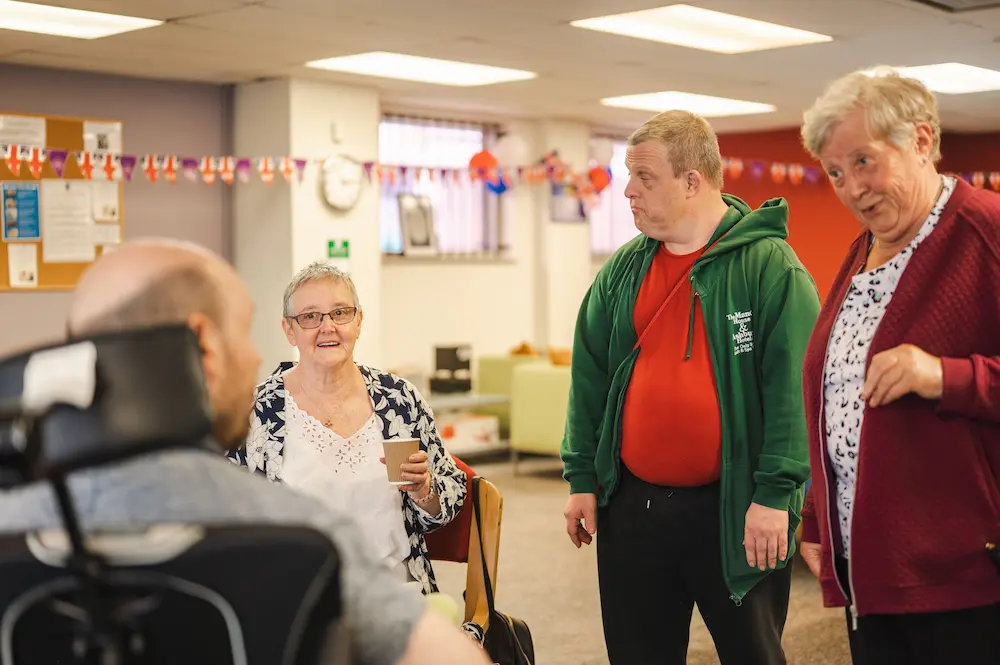Promoting Independence in Care

Estimated Reading Time: 8 minutes
If you have an elderly loved one who needs care, they might be worried about losing their independence. This loss of independence will mean relying on others to help them out on a day-to-day basis.
Ensuring your loved one enjoys as much independence as possible can promote some really positive feelings. By doing this, they'll feel that they have a clear purpose in life.
Promoting independence is key to helping your family member maintain a good quality of life - whether this is in a residential care home or when receiving home care.
This article looks at what independence is in health and social care and how best to promote it, along with the roles that amazing care homes, community links and communication can play.
Kickstart your care search
Discover the best care homes in your area through Lottie.
In this article:
- What is independence in health and social care?
- The importance of encouraging independence for elderly people
- How to promote independence
- Personalised goals
- Developing relationships
- Community
- Communication
- Involving the person
- Helpful resources
What Is Independence in Health and Social Care?
Independence means having total control over your own life and any decisions made about it.
We may become less independent as we get older, due to our care needs increasing and becoming less mobile.
With the right care package and care plan in place though, you can still enjoy plenty of independence whilst also receiving any necessary social care and support that they require.
Receiving live in care or living in a brilliant residential care home that allows you to maintain your independence is a great example of independence in health and social care.
The Importance of Encouraging Independence for Elderly People
Promoting independence in the elderly is simple: it’s about enabling people to do more for themselves, make choices and have a greater degree of control over their life.
Though entering social care can cause your loved one to lose some independence, it’s important that you support them and provide assurance that they’re still capable of doing things for themselves.
When a care home promotes independence, its residents will feel as though they’re viewed as individuals.
How a care home promotes independence is really important. You shouldn’t be totally left alone though. Instead, it’s important to focus on individuals and their personal needs. In a care home, this means looking at all aspects of daily life and activities, before taking a tailored approach that balances independence, support and care.

How to Promote Independence
Promoting independence in care doesn’t just mean leaving a resident alone. Instead, your support should be accommodating while enabling them to be as independent as possible. Providing your loved one with plenty of input on decisions that affect them can have an emotional and physical benefit.
Somebody’s desire to remain independent won’t always be reflected in their capabilities, with this becoming increasingly noticeable as time goes on. Giving your loved one as much of a say as possible when it comes to decisions that affect them can have a positive impact on their wellbeing.
The same applies in a care home. Residents will be properly looked after and cared for, while also given the chance to do things for themselves like set a routine or decide what activities they’re going to do.
We’re here to help you find the right care home for you or your loved one. You can request a free list of care homes from our Care Experts, who will then share homes matching your budget, location and type of care needed. You can also search for care through our easy-to-use directory.
Different Ways To Encourage Independence
We understand the importance of maintaining independence as you get older, so here are plenty of other ways to best provide support to a care home resident:
- Using computers, tablets or similar devices
- Making and receiving phone calls
- Engaging in social activities within a care home such as board or card games, as well as going on trips outside of the home
- Gentle exercise (such as going for a walk or stretching). Exercise is beneficial to all and should be encouraged wherever possible, even if it's only a case of strolling around the garden
- Moving around in the care home, without the assistance of a carer
- Making choices about their own diet and meal selection
- Taking care of any other tasks or errands

Personalised Goals
When it comes to promoting independence and giving somebody a genuine sense of purpose, choosing the right goals is really important.
To do this, you should agree on goals with your loved one, taking into account what’s important to them and what it is they want to achieve. Goals could include things like taking part in physical activities, community groups, projects or other social and leisure activities, along with practical or everyday tasks.
Care homes can help your loved one achieve their goals as they have numerous members of trained staff who will spend quality time with them throughout the day.
Make sure that your loved one’s goals:
- Take their mental health and wellbeing into account
- Reflect on what it is they want to achieve
- Consider how their conditions or experiences affect them
- Reflect their best interests and wishes
When creating these goals, be sure to write them down and give a copy to your loved one, along with any other family members, friends or carers (if they agrees to this).
Developing Relationships
Promoting independence doesn’t just create a renewed self confidence or heightened sense of self-esteem, but can also develop and strengthen relationships between residents and staff within a care home. Care home staff members are often on-hand to help residents on an individual basis where required.
Care homes will guide people and their carers towards opportunities which aim for maximum independence, allowing them to feel a sense of purpose. Care homes will also support people to maintain and develop rewarding social relationships. This could include helping their residents travel and setting up communication between residents and their family members.
Community
Being surrounded by a supportive community can go a long way to promoting independence.
Strong community links will help ensure you or your loved one will be put in touch with people in similar situations, while an encouraging community will often work with partners to develop groups that can provide support to each other.
Community, social relationships and support networks can all help support your loved one and contribute to their independence.
Communication
Some of the ways you can ensure good communication with your loved one or someone you’re caring for are by:
- Providing details of who to go to with any questions or worries
- Explaining how to contact different social care services
- Helping them make any decisions regarding social care or support
Providing quality advice and information is an effective way of promoting independence. Many county councils, local authorities and other public services play an important role in ensuring you have access to information that’ll allow you to make healthy lifestyle choices.
When promoting independence in care, good communication is really important. When you or your loved one’s health and care needs increase, any necessary information should be provided to them. This will also help with managing new health and care needs as they arise.
Having an excellent level of communication between a care home and their resident will allow independence to remain and flourish at a much older age. This communication includes access to advice when planning for later life as support needs develop or increase.

Involving the Person
Promoting independence as someone receives care and support will involve you or another carer working closely with them to agree on what support they need to stay independent.
As we mentioned earlier, you should be working towards goals that are separate from that of ongoing care and support. Be sure to speak with your loved one about how they’d like to be supported and what they’d like to be able to do through their newly-found independence.
Make sure that your loved one or care home resident:
- Knows what support is available to them
- Knows how to ask for services such as intermediate care
- Understands what is involved in different services
Helpful Resources
Social care package for elderly people
Developing effective services that make a difference in people’s lives (YouTube video)
Strength-based approaches to independence in care
Lottie matches care seekers with the best care homes for their needs. You can request a free care home shortlist from our Care Experts, who will share homes matching your budget, location and type of care needed. You can also search for care through our easy-to-use directory.




